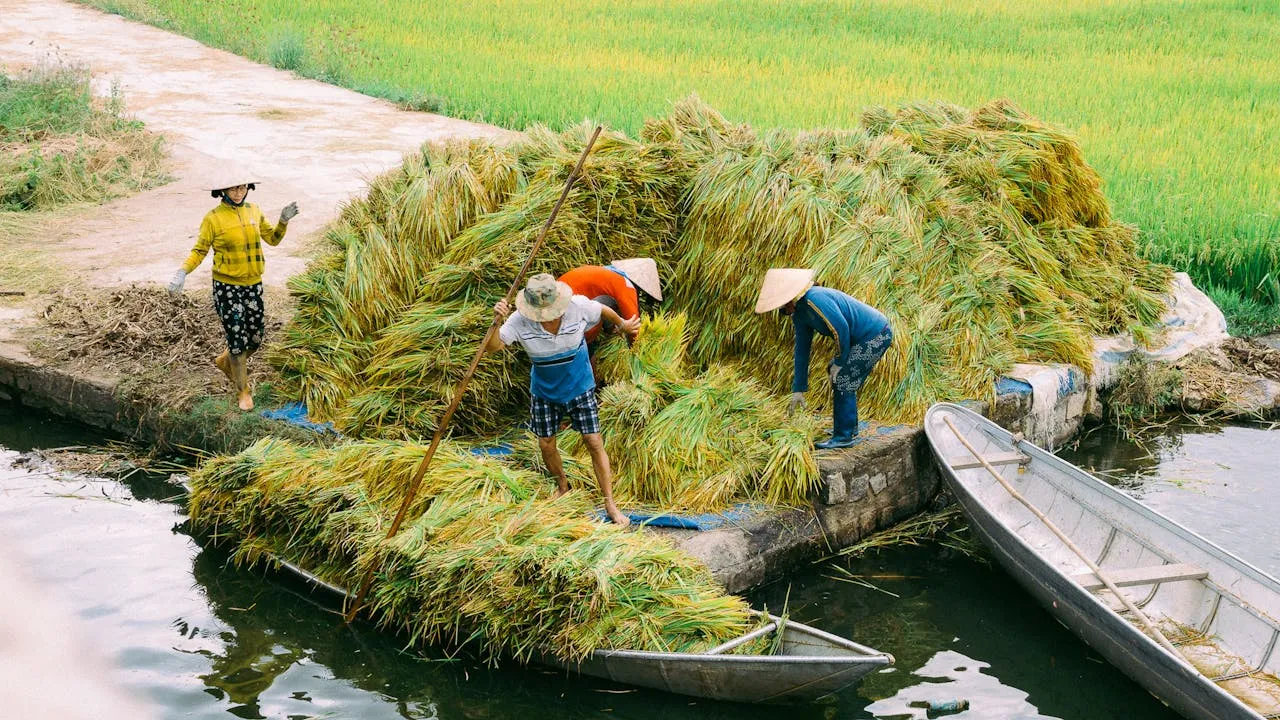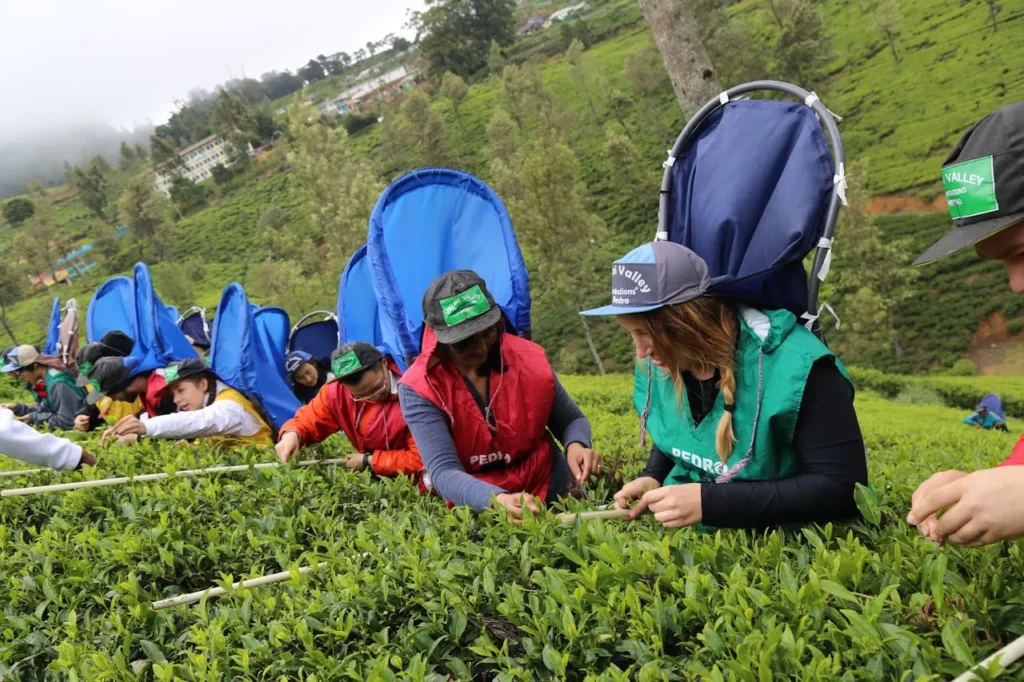
Brussels, Belgium – In a bold and visually arresting act of protest, a series of surrealist artworks, inspired by the iconic painter René Magritte, recently appeared outside the European Parliament. The images weren’t merely artistic flourishes—they served as a stark visual warning about the unsustainable trajectory of farming in Europe and the urgent need to reform the Common Agricultural Policy (CAP), the European Union’s massive €386 billion farm subsidy program.
The protest was orchestrated by WeMove Europe, an independent citizens’ movement representing over 750,000 people from across the continent. The campaign group, working alongside a broad coalition of farmers’ associations, environmental NGOs, and more than 100,000 citizens, is calling for a fundamental realignment of the CAP with the EU’s Green Deal objectives. Their message: Europe’s agricultural policy is broken, rewarding industrial agribusiness at the expense of sustainable, small- and medium-sized farms—and ultimately, the environment.
Art as Activism: A Surrealist Statement on a Failing System
The demonstration drew inspiration from Belgian surrealist René Magritte’s iconic work, “The Treachery of Images,” which famously proclaimed, “Ceci n’est pas une pipe” (“This is not a pipe”). In similar fashion, the artworks displayed outside the European Parliament bore phrases like “Ceci n’est pas une pomme” (“This is not an apple”) and “Ceci n’est pas une ferme” (“This is not a farm”). These ironic captions challenged passersby to question the authenticity and reality of the current food and farming systems in Europe.
Each image conveyed a deeper truth: under current EU policy, farming has ceased to prioritize food production or rural livelihoods. Instead, it props up a system dominated by corporate consolidation, environmental degradation, and social inequity. A full gallery of the campaign’s art pieces is available online at , where viewers are encouraged to reflect on the disconnect between political rhetoric and lived rural realities.
A System in Crisis: CAP Rewards the Few at the Expense of the Many
At the heart of the protest is a scathing critique of how CAP funds are distributed. Over 80% of the EU’s agricultural subsidies are funneled to just 20% of recipients—mostly large-scale agribusinesses and wealthy landowners. Meanwhile, over five million farms have disappeared in the EU since 2005, with smallholder farmers increasingly forced to abandon their land due to financial pressure, lack of support, and unfair market conditions.
In many regions across Europe, one in every three farms has shut down operations. Intensified production and unchecked overcapacity, subsidized by the CAP, are driving down market prices—sometimes below the cost of production. Farmers in France and Spain, for example, report being paid less for their milk than it costs to produce it. This race to the bottom is a direct result of market failures bolstered by CAP policies, critics argue.

Polling released earlier this year underscores the growing discontent: up to 70% of farmers in Spain, Italy, and Poland feel abandoned by policymakers. Despite their frustration, most farmers surveyed expressed pride in their profession and a willingness to engage in environmental stewardship—if only they had the institutional support to do so.
Farmers Speak Out: “Public Money Should Support Public Good”
Morgan Ody, a vegetable grower from Bretagne, France, and a representative of the European Coordination Via Campesina (ECVC), emphasizes the importance of redirecting subsidies toward truly sustainable farming practices.
“A strong CAP budget is essential to meet the many challenges farmers face today—climate change, rural decline, and economic uncertainty among them,” Ody explained. “But this public money must be used responsibly—to support rural vitality, regulate agricultural markets, and help farmers transition to agroecological practices. It must not be used to accelerate the industrialization of farming or enrich corporate shareholders.”
The coalition argues that a radical rethinking of the CAP is both necessary and overdue. Instead of promoting unsustainable models of agriculture that harm soil, water, and biodiversity, the CAP should be harnessed to deliver public benefits: healthy food, environmental resilience, fair livelihoods, and vibrant rural communities.
A Call to Action: Rewriting the Future of Farming
Giulio Carini, communications manager at WeMove Europe, summed up the urgency of the moment: “Our farming system is rigged. Small farmers are being driven off the land while multinational agribusinesses collect billions in public money. We need to ask what kind of farming future we are funding—and who it truly benefits.”
Carini called on citizens across the EU to pressure their governments and EU institutions to enact serious CAP reform: “We need a new vision for European agriculture—one that values people, nature, and the climate. It’s time to stand up for fair prices, nutritious food, and a food system that allows small farmers and ecosystems to thrive.”
Coalition Demands: What Real CAP Reform Looks Like
The protest is more than symbolic—it is backed by a concrete set of policy demands aimed at realigning the CAP with ecological and social justice. The coalition is calling for:
- Fair prices for farmers that cover the true costs of producing sustainable, healthy food.
- Stronger market regulation, including supply management tools and minimum price guarantees to stabilize farmer incomes.
- Targeted support for small and medium-sized farms, prioritizing these over large industrial players in subsidy allocations.
- A just transition to agroecology, ensuring that agricultural practices protect soil health, water quality, biodiversity, and the climate.
- Universal access to sustainable food, making healthy food affordable and available for all, while eliminating hidden costs to health and the environment.
These demands aim to create a farming future that is economically viable, socially inclusive, and environmentally responsible—one where farmers are rewarded not only for what they produce, but for how they produce it.
Tying Agriculture to the EU Green Deal
The coalition insists that CAP reform is essential to delivering on the EU’s Green Deal, which seeks to make Europe the first climate-neutral continent by 2050. A sustainable farming system must be a cornerstone of this effort, they argue. Without meaningful reform of the CAP, Europe’s climate targets, biodiversity goals, and rural development plans are unlikely to succeed.
In closing, the protest sends a message that echoes far beyond the surrealist canvases displayed outside the Parliament: Europe’s farm policy must change—urgently and fundamentally. As citizens and policymakers alike are challenged to look past postcard images of idyllic farms, the call for a fair, green, and just food system grows louder than ever.
Let me know if you’d like a version tailored for a specific publication, tone (e.g., journalistic or academic), or audience.





